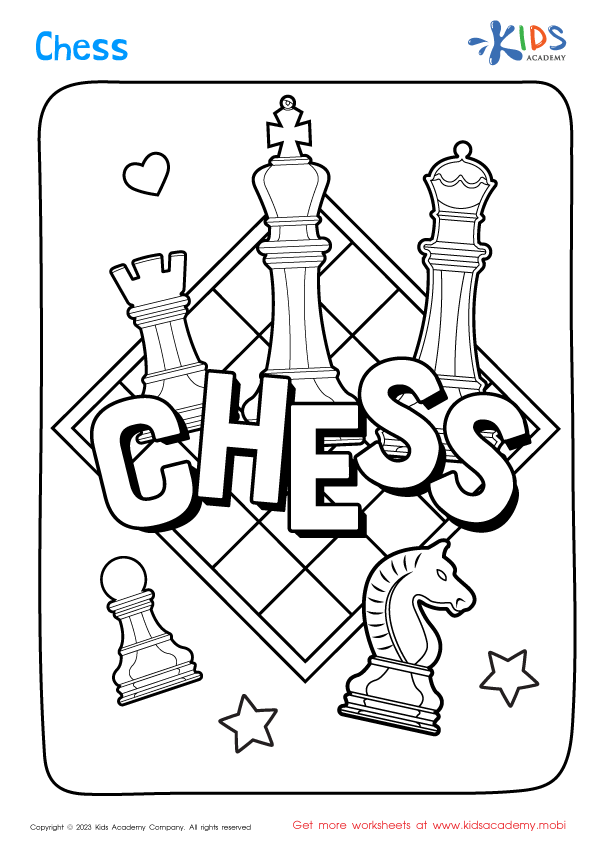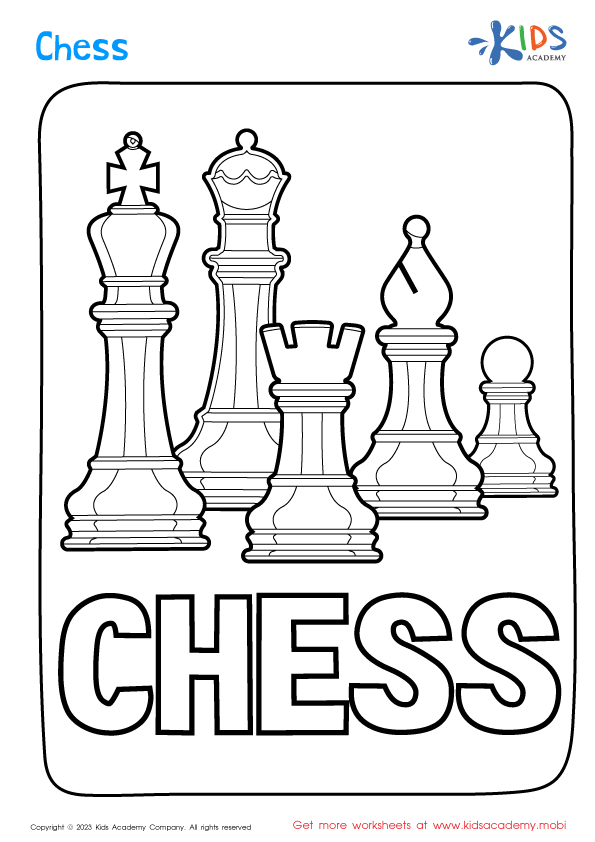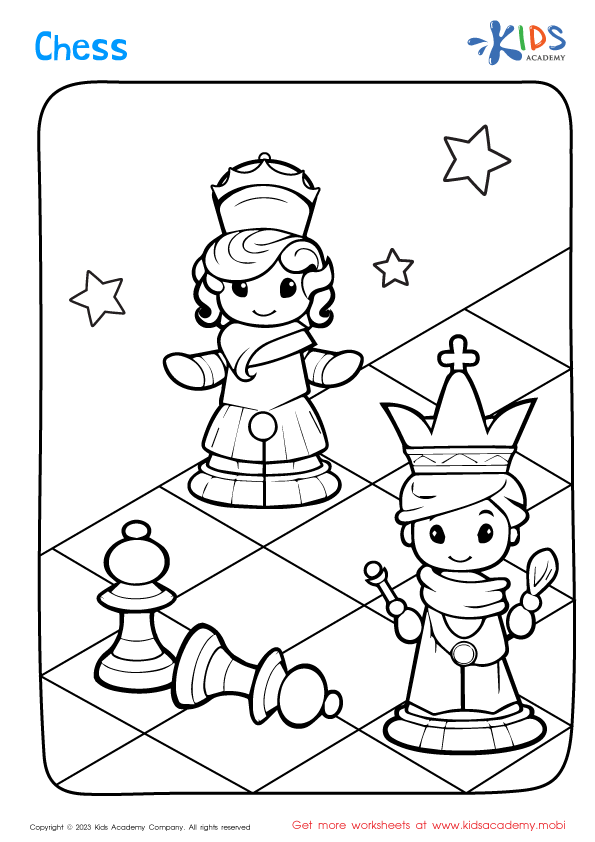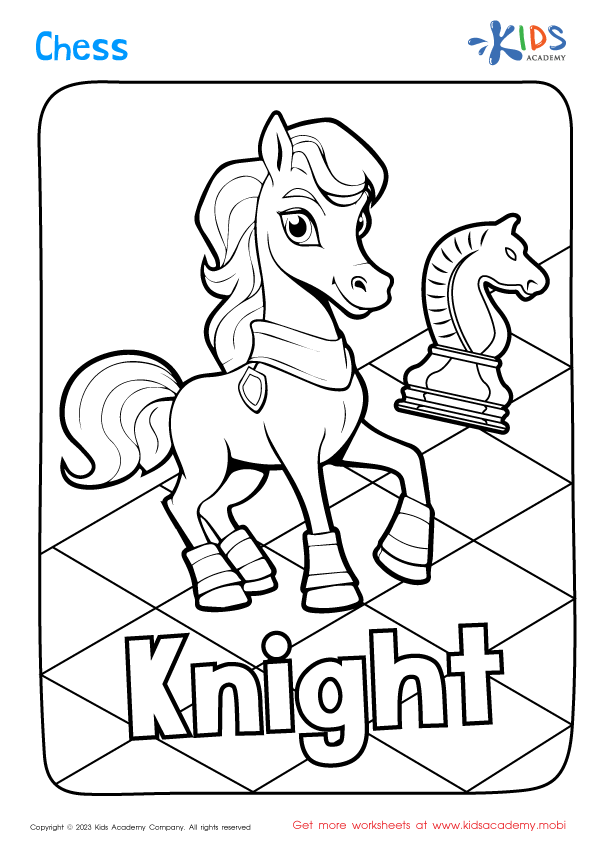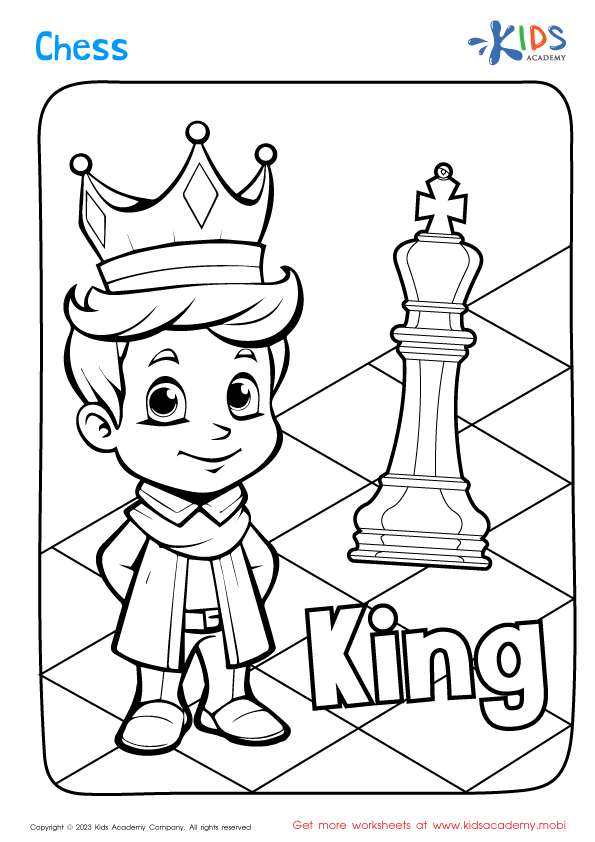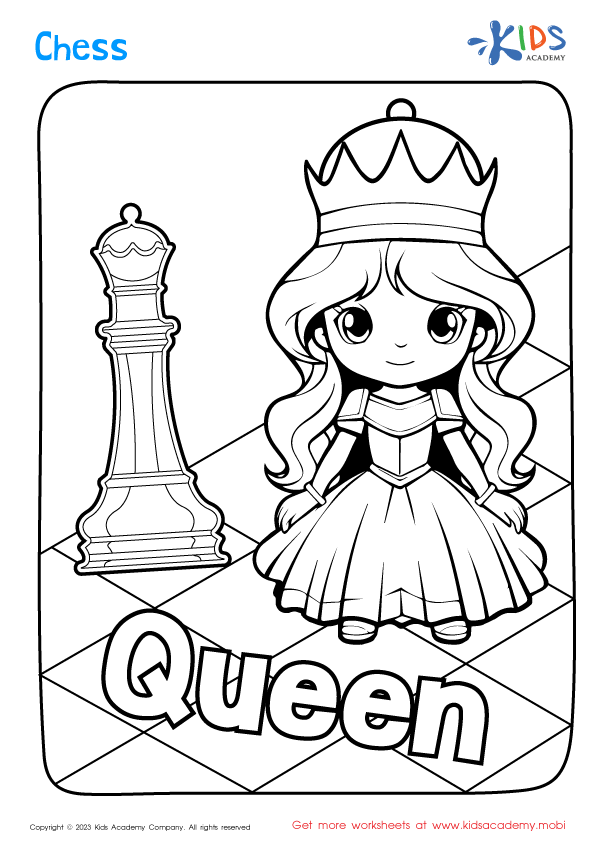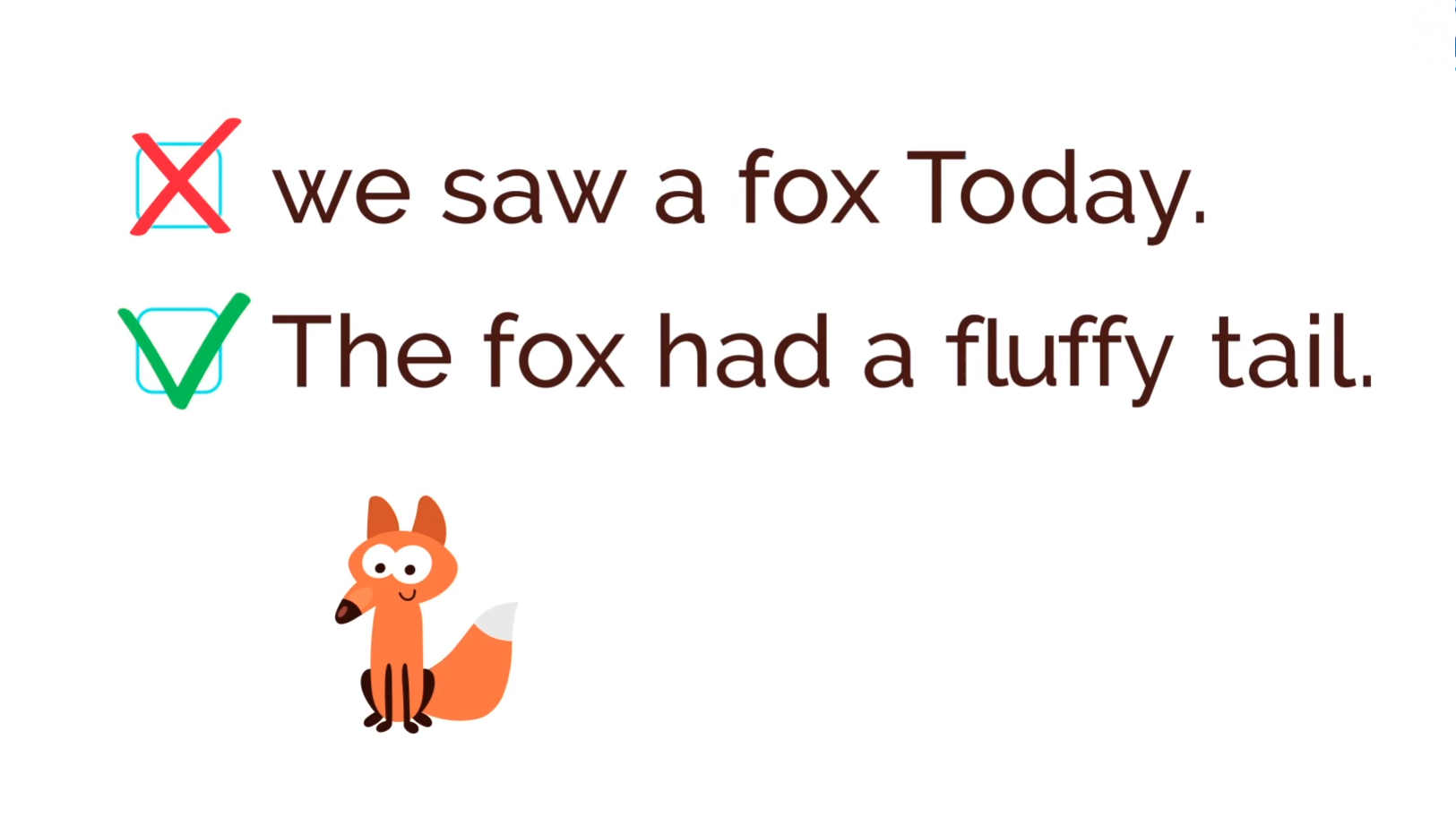International Chess Day worksheets activities for Ages 6-8
6 filtered results
-
From - To
Celebrate International Chess Day with our engaging worksheets and activities designed for children ages 6-8! These fun-filled resources encourage critical thinking, strategy, and problem-solving skills through the exciting game of chess. Our worksheets feature a variety of brain teasers, including chess puzzles, matching games, and color-by-number activities that introduce young learners to chess pieces, rules, and the history of the game. Perfect for enhancing cognitive development while fostering a love for chess, these activities can be used in classrooms or at home. Download our International Chess Day worksheets today and let your kids embark on a chess adventure!
International Chess Day, celebrated on July 20th, presents a unique opportunity for parents and teachers to engage children aged 6-8 in meaningful activities that extend beyond the game itself. Chess, often perceived as merely a recreational pastime, offers a plethora of cognitive and developmental benefits essential for young minds. Participating in chess-related activities helps cultivate critical thinking, problem-solving skills, and strategic planning, fostering intellectual growth.
Incorporating chess into educational settings encourages social interaction as children learn to engage with peers, negotiate, and communicate while playing. These interactions enhance emotional intelligence and teamwork, which are crucial at this formative stage of development. Furthermore, chess teaches essential life skills such as patience, discipline, and the ability to cope with winners and losers, all of which build resilience and character.
Celebrating International Chess Day through workshops, community events, or school programs can ignite a lifelong passion for the game, encouraging creativity and curiosity among children. Parents and teachers who champion these activities not only support cognitive development but also create an inclusive environment where children can learn valuable lessons about competition and cooperation. Ultimately, nurturing a love for chess today sets the stage for well-rounded growth and the potential for future success.

